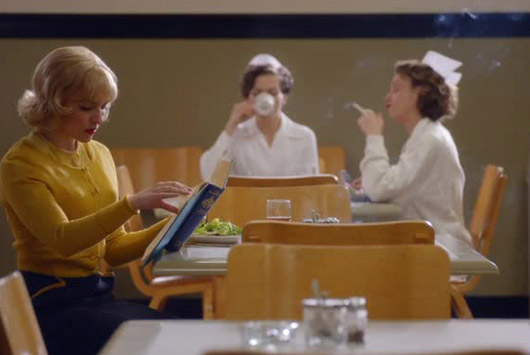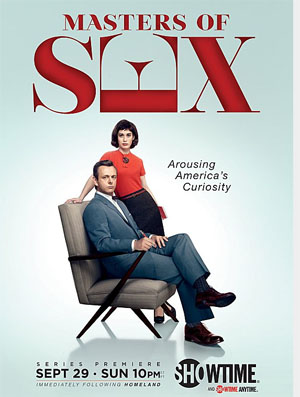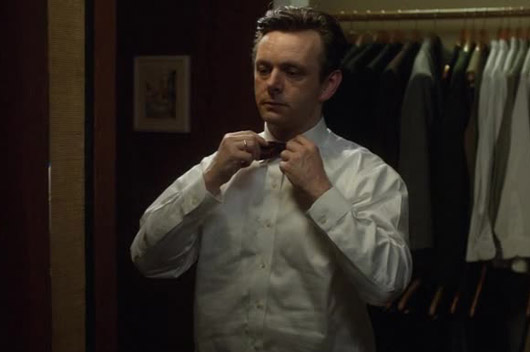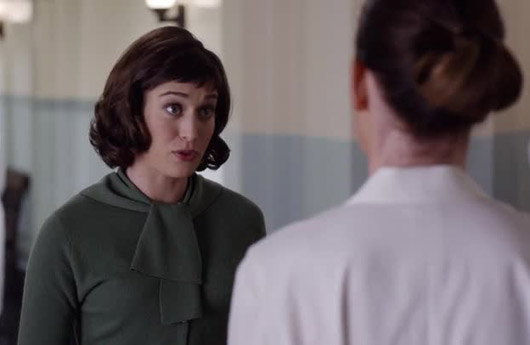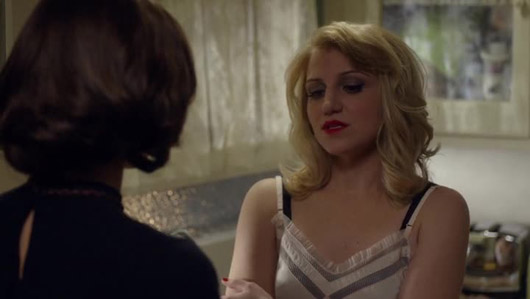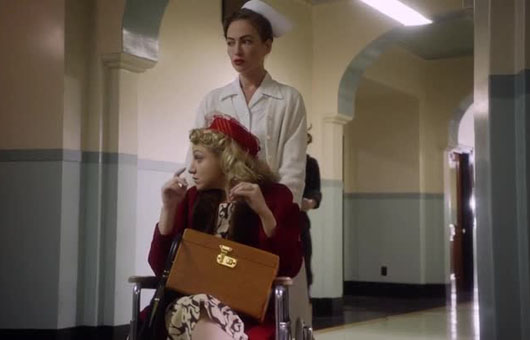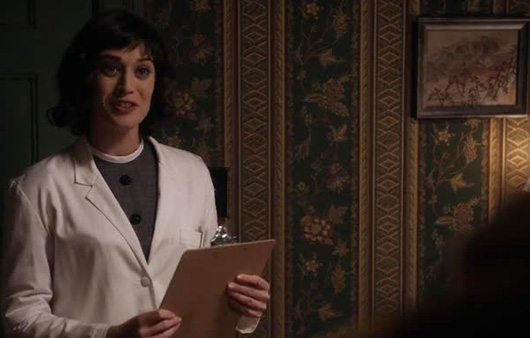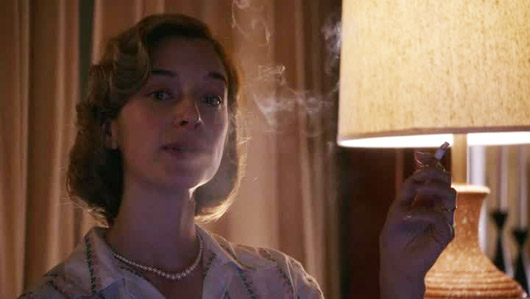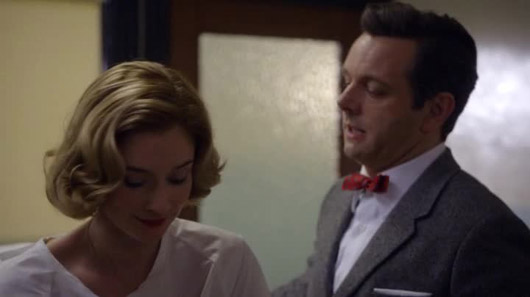 FILM
FILM In Which We Wake Up And Jennifer Lawrence Is Kinda There
 Friday, December 30, 2016 at 10:53AM
Friday, December 30, 2016 at 10:53AM 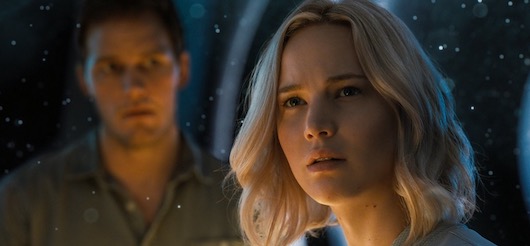
The Sleeping Girl
by ELEANOR MORROW
Passengers
dir. Morten Tyldum
116 minutes
 It is a very weird moment in Passengers when Jim Preston (Chris Pratt) walks by Aurora Lane (Jennifer Lawrence) in her hibernation pod. He has been woken up ninety years too soon on his generation starship, and he is looking for some feminine companionship. The only place he can go for advice is the ship's bar, where an android played by Sarah Silverman's boyfriend tells him not to wake her from hibernation. Jim is so sexually frustrated by Aurora's unavailability that he takes out his anger on a boxing bag. "She's the perfect woman," he whines to no one in particular, even though he has never met her.
It is a very weird moment in Passengers when Jim Preston (Chris Pratt) walks by Aurora Lane (Jennifer Lawrence) in her hibernation pod. He has been woken up ninety years too soon on his generation starship, and he is looking for some feminine companionship. The only place he can go for advice is the ship's bar, where an android played by Sarah Silverman's boyfriend tells him not to wake her from hibernation. Jim is so sexually frustrated by Aurora's unavailability that he takes out his anger on a boxing bag. "She's the perfect woman," he whines to no one in particular, even though he has never met her.
Well, Aurora is not the perfect woman, not by a long shot. Jim finds various videotapes of her recorded by the company previous to her interstellar journey that make it clear she is a pretentious twerp. He is still fixated on this one birthmark on her neck and he ends her hibernation anyway, a move so incredibly selfish that is impossibly to like or even respect his character. But then, the more you learn about Chris Pratt, the more impossible it is is like or respect him, too.

Lawrence looks relatively emaciated for the role, but director Morten Tyldum goes to great pains to make her appear very soft. She wakes up with complete makeup, including eyeshadow and immediately has a panic attack that the two of them are alone together. I guess she is afraid of what will happen?
She tells Jim that she can't imagine being completely alone for a year, like this is the dirt-worst nightmare that could befall anyone ever. The room he lives in has a basketball court, couldn't he like work on his jump shot and read Elena Ferrante books? That would have taken until approximately June, and he could have ruined a woman's life after that.

Even though there's a bunch of hibernation pods around that could probably be used to go back to sleep, I guess a part of Jim doesn't really want to, given that he has unlimited alcohol, food and Jennifer Lawrence. The two of them put a serious focus on breaking into the command deck, although it is somewhat unclear as to what they could accomplish there. Eventually they notice that the ship's automation seems somewhat awry, which should have tipped them off to preserving food and reproducing. The two have a warped, semi-passionate sex scene, not halfway as erotic as it is seeing Jennifer Lawrence in a full-body white swimsuit.
With nothing else to distract her, Aurora focuses in on her traveling mate. She asks him questions like she is a combination between Studs Terkel and Jane Pauley. One night she gets dressed up for him and he's like, "Wow." She tells him that he cleans up pretty good as well and they pretend to go on this weird date where it is not completely clear whether or not Jim plans to drug this woman. Aurora has applied an astonishing amount of makeup by this point, like gobs of it.
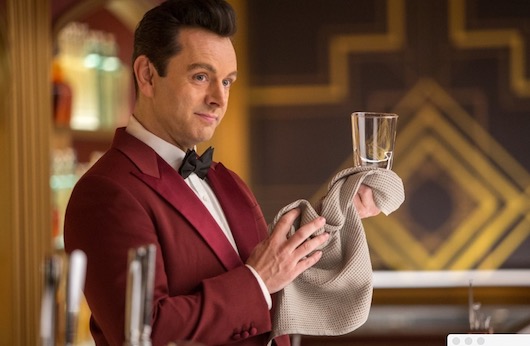
Now that these two are a couple they try having "spontaneous" sex around the ship and running (?). At this point Passengers slows to a glacial, disgusting crawl. Let me attempt to describe the kind of chemistry Chris Pratt and Jennifer Lawrence have together. It is like when you have a friend who is a very complicated woman, and she meets a man who gets her. Then one time you're out with both of them at a restaurant, and while Jennifer Lawrence is in the bathroom, Chris Pratt tells you that he's on Reddit.
In a very emotional scene, Aurora finds out that Jim woke her up from hibernation, and by this point we sort of hope she murders him and bags his body. Instead she throws a vase and sobs.

The ship breaks down completely after that, and these two twits haven't saved any food whatsoever. Fortunately, Laurence Fishburne wakes up and the entire rest of the plot is forgotten about in short order. Even though Fishburne is the only one who has any idea what is going on, Aurora is immediately combative with him and the only thing she can think of is to tell him how upset she is that the breakfast bar is malfunctioning.
"It's murder," Aurora tells Laurence Fishburne about her predicament, and he gives her a folksy metaphorical, semi-racist way to come to terms with the situation. Shortly thereafter he dies. While the one-sheet for Passengers, promises "there is a reason they woke up," it turns out there is not really a reason whatsoever, and Aurora figures out how to love her murderer. Maybe she'll start doing feminist movies next year.
Eleanor Morrow is the senior contributor to This Recording. You can find an archive of her writing on This Recording here.







































